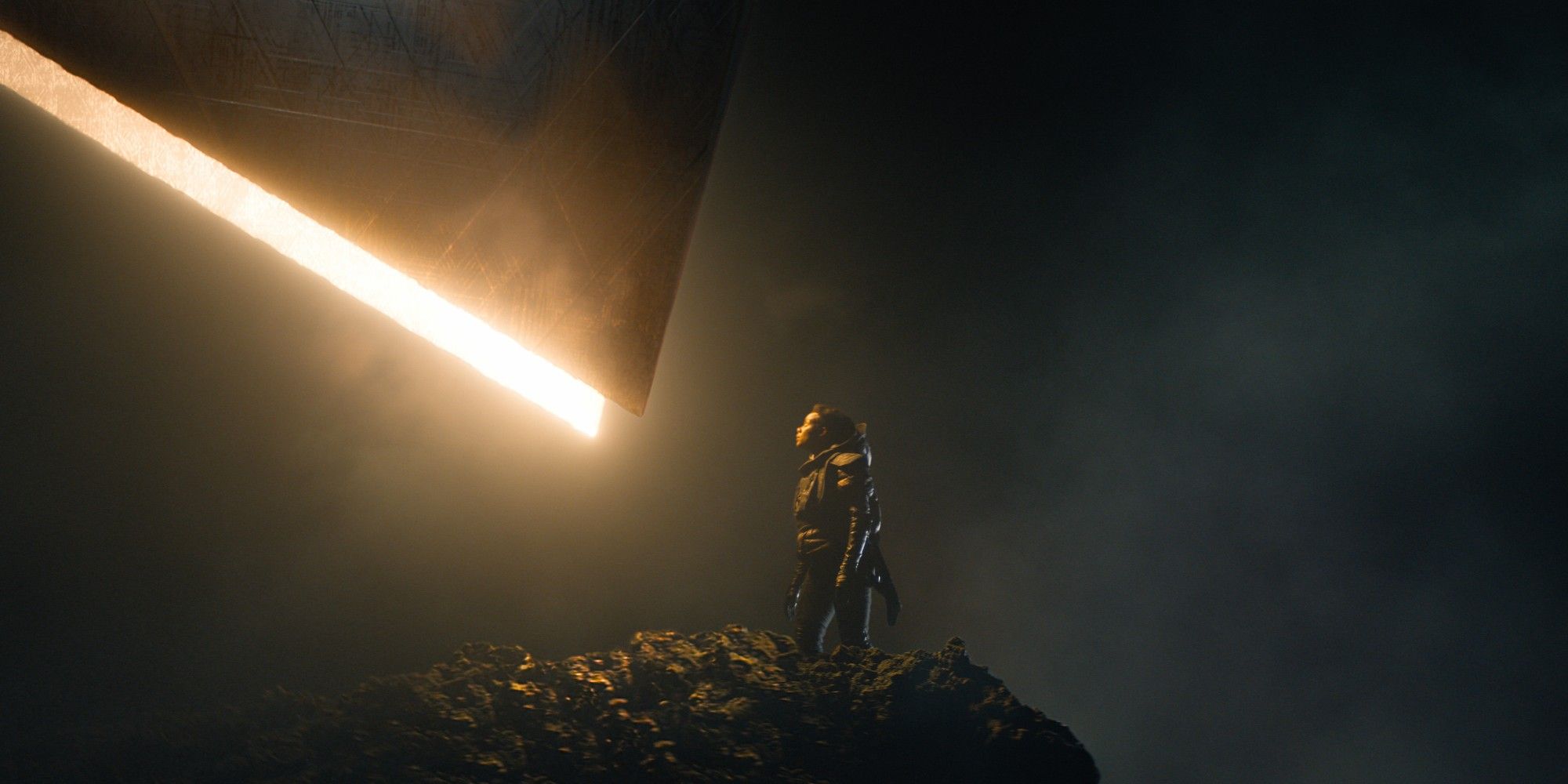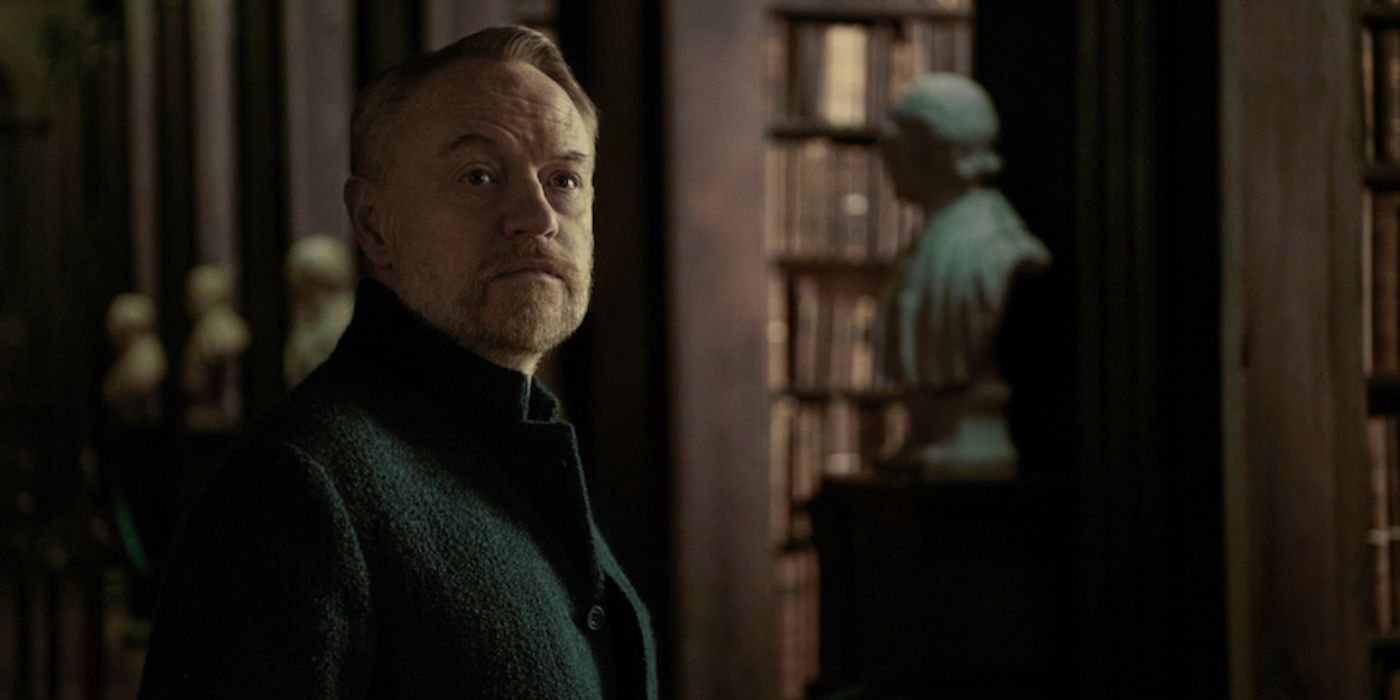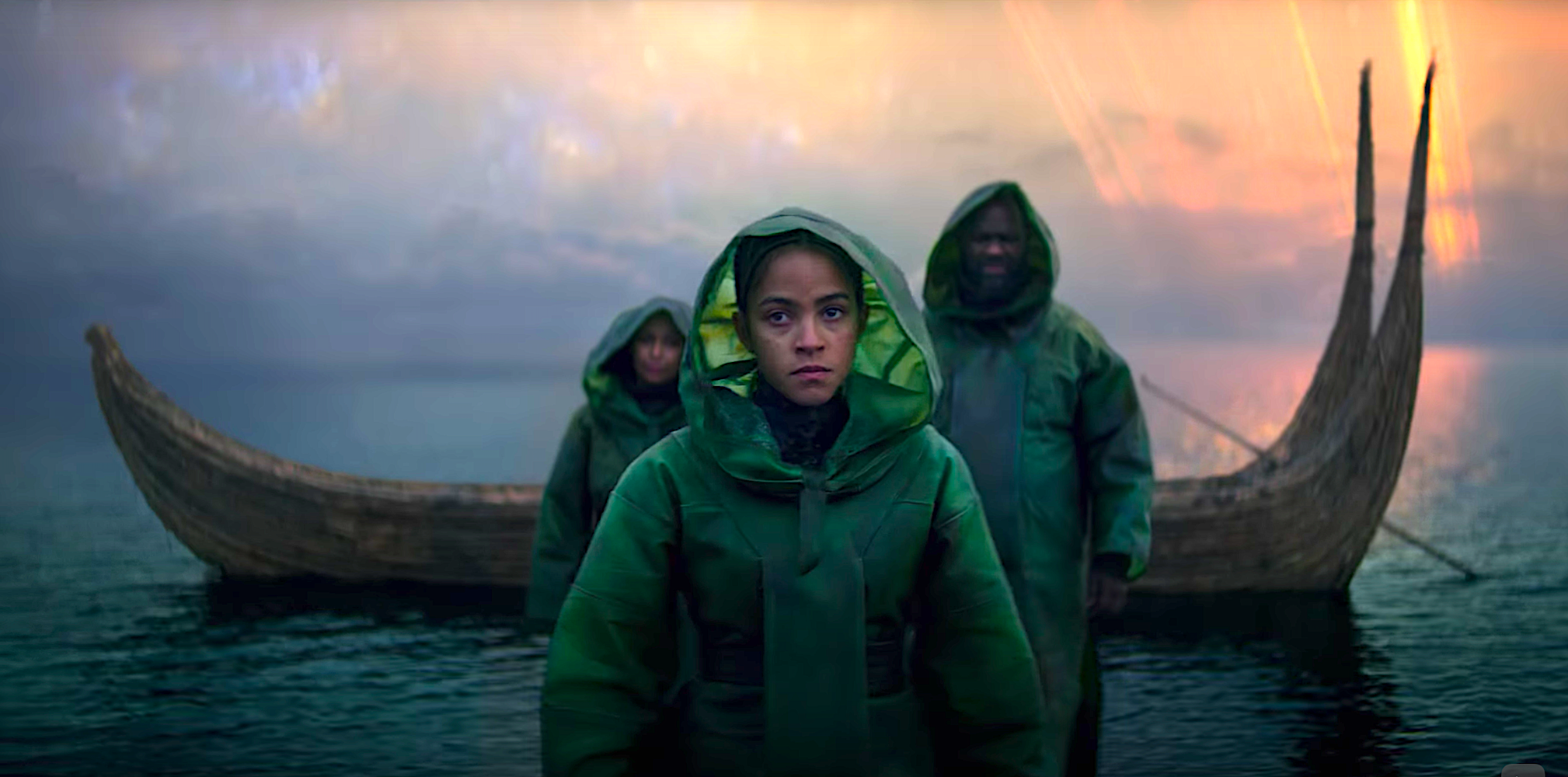Since it was first released, Issac Asimov's Foundation series has been a benchmark of science-fiction and is often considered one of the most unfilmable book series in pop culture. Although it has been a major influence on other seminal sci-fi works, its sheer scope and weight have made it a tricky beast to adapt for the screen. But that hasn't stopped Foundation's executive producer and writer David S. Goyer and Apple TV+ from accomplishing what others thought impossible -- bringing the seminal sci-fi series to life in a new television series.
During an exclusive interview with CBR ahead of Foundation's premiere on Apple TV+ on Sept. 24, Goyer revealed his personal history with the Foundation book series and discussed why Apple TV+ was the perfect partner to bring the stories to life with for modern audiences.
CBR: What is it about Foundation that made you so passionate about finally bringing it to life?
David S. Goyer: Well, like a lot of people, Foundation was my gateway drug into science-fiction. My father gave me a copy of the trilogy when I was 13 and said, "This is the greatest work of science fiction of all time." I started to read it at 13. I didn't get it. I didn't understand it. I picked it up a few years later. I understood a little more. I picked it up a few years later after that. I understood a little more. It's funny because Foundation is one of those works that a lot of people seem to have a very personal relationship to and it's certainly something that I revered in my 30s. It's something that I would have said, "Adapt Foundation? You're crazy. You're insane. No one should attempt it." When I was in my 40s, I was actually offered the chance to adapt it twice as a feature or series of features.
I re-read it. Even then I said, "I don't think it's possible to distill all of this into two or three hours or even six hours." It wasn't until about four years ago when I was offered it a third time, but now as a streaming show, that I thought, "I think the medium and the audience may have finally caught up to some of the ideas that Asimov has." And so now, instead of having to condense everything, over the course of six or seven or eight seasons, we can actually expand on his ideas. There are all sorts of events that happen off-screen in Asimov's novels that now we can dramatize. It just felt like the medium caught up to his ideas.
What made Apple TV+ the perfect partner for this endeavor?
Apple started as a tech company, and there are a lot of people in the tech world that revere Asimov, so that seemed like a good fit. It wasn't a heavy lift, because so many people at Apple are fans of Asimov. I like the big swing that Apple TV+ was taking in terms of the global market. I like that they're very focused on a global audience and expanding that audience. I like that Apple TV+ is very focused on emotion. I think the key thing that I wanted to do with Foundation was finding an emotional way into [the series]. So all of that was just really exciting to me.
It was the right time, the right kind of audience, the right kind of streamer. They were very receptive to the idea. They were receptive to the idea of telling a story over a long period of time... It just was one of those perfect moments of kismet.
It's not wrong to say you have had a major impact on pop culture and how it's grown over the last two decades -- especially taking on these different stories and worlds that have so much of a legacy, and bringing them to new audiences. And now, with Foundation, you're exploring a story that's in many ways about legacy, about the impact that we can have on generations far beyond us. Was that something in your mind during the production of the series?
Yeah, it was. I definitely had these kinds of meta moments. I'm a father of three. In my case, once I became a father, I started to think a lot about my personal legacy. I started thinking about the work that I'd done prior, leading up to this and if there were anything I wanted to do differently. I thought about the weight that the Foundation trilogy has in terms of legacy. The thing about legacy is -- and having adapted some other really important works of literature or comic books -- it's really important to respect what's come before, but also not be [held back] by it. It's an adaptation, and we're adapting Foundation over 70 years after Asimov had created it. The audience that he was writing for in a post-World War II environment is not the audience that exists today.
Fortunately, the Asimov estate fully embraced that. They said that Asimov himself would have embraced that. It's impossible to do a line-for-line adaptation. I'm aware of the fact that some purists will say Demerzel is a man in the books, even though Demerzel is a robot and doesn't have any gender. I'm aware of that. But we're not doing a line-for-line adaptation of the book. We're not adapting the books for an audience of 1948 or 1952. We're adapting it for a global audience that's taking it in right now. We're exploring and interrogating all the things that we as a society are going through right now. That's the brilliance of Asimov... I would argue that Foundation is even more relevant today than it was when Asimov wrote it.
Foundation stars Jared Harris as Hari Seldon, Lee Pace as Brother Day, Lou Llobell as Gaal Dornick, Leah Harvey as Salvor Hardin, Laura Birn as Eto Demerzel, Cassian Bilton as Brother Dawn, Terrence Mann as Brother Dusk, and Alfred Enoch as Raych Seldon. Foundation premieres Friday, Sept. 24 on Apple TV+. The first two episodes will be available at launch, with subsequent episodes arriving every Friday.



